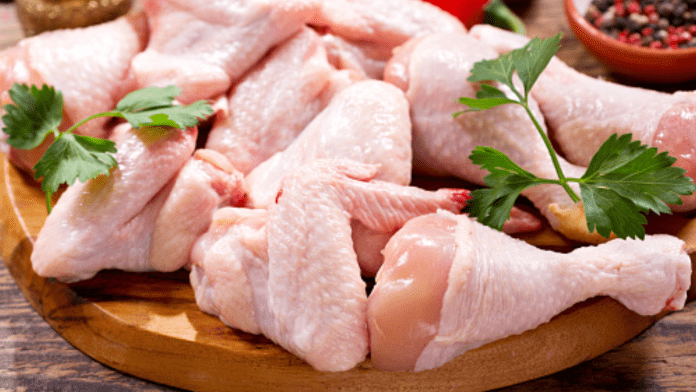In recent years, the pursuit of fitness and a healthy lifestyle has gained significant popularity. People are becoming more conscious about their food choices, with a particular focus on consuming lean protein sources. Broiler chicken, commonly consumed by many due to its affordability and availability, may seem like an excellent choice for fitness enthusiasts. However, in this article, we will delve into the potential drawbacks of broiler chicken and explore how it could be hindering your fitness progress.
Understanding Broiler Chicken Production:
Broiler chickens are a type of chicken specifically bred and raised for meat production. The demand for broiler chickens has skyrocketed due to their rapid growth rates and high meat yield. Unfortunately, this intensified production process often involves questionable practices, including the use of growth hormones, antibiotics, and overcrowded conditions. These factors can have significant implications for both the chicken’s health and the nutritional quality of the meat it produces.
Reduced Nutritional Value:
One of the primary concerns with broiler chicken is its reduced nutritional value compared to traditional, slower-growing chicken breeds. The accelerated growth rate of broiler chickens often results in a higher fat content and lower protein quality. Additionally, the use of growth hormones and antibiotics can further compromise the nutritional composition of the meat.
Moreover, broiler chickens are typically raised in confinement, limiting their access to natural foraging and a diverse diet. This restricted environment may lead to a deficiency in essential nutrients, such as omega-3 fatty acids, which are beneficial for cardiovascular health and overall well-being. Consequently, opting for broiler chicken as a primary protein source may not provide the optimal nutrition required for effective fitness progress.
Hormonal and Antibiotic Concerns:
The use of growth hormones and antibiotics in broiler chicken production is a topic of concern for many health-conscious individuals. Growth hormones, such as ractopamine, are administered to stimulate muscle growth and increase meat production. However, the long-term effects of consuming meat treated with these hormones are still not fully understood, and their potential impact on human health remains a subject of debate.
Similarly, the routine use of antibiotics in broiler chicken production can contribute to the development of antibiotic resistance in both animals and humans. This can be problematic when individuals rely on antibiotics to treat bacterial infections, as they may become less effective over time.
Environmental and Ethical Considerations:
Apart from the potential health implications, broiler chicken production also raises concerns about its environmental and ethical impact. The intensive farming practices associated with broiler chicken production require substantial amounts of feed, water, and energy. This leads to deforestation, increased greenhouse gas emissions, and water pollution, contributing to environmental degradation.
Furthermore, the overcrowded conditions in which broiler chickens are raised can be viewed as inhumane and ethically questionable. These birds are often deprived of space to move freely, engage in natural behaviors, and experience a decent quality of life.
Alternatives to Broiler Chicken:
Considering the potential drawbacks of consuming broiler chicken, it is essential to explore alternative protein sources that align better with fitness goals. Opting for organic, free-range chicken or choosing other lean protein sources like fish, turkey, tofu, legumes, or plant-based protein powders can provide a more balanced nutritional profile.
Free-range chicken, for example, is raised in more natural conditions, allowing the birds to forage, engage in natural behaviors, and produce meat with a better omega-3 fatty acid profile. Similarly, plant-based protein sources offer a variety of essential nutrients, are often lower in saturated fats, and have a lower environmental impact.
Final Thoughts:
While broiler chicken may be a convenient and affordable protein source, it is essential to consider the potential drawbacks it poses to your fitness progress. The reduced nutritional value, concerns regarding hormones and antibiotics, environmental impact, and ethical considerations associated with broiler chicken production should encourage fitness enthusiasts to explore alternative options. By making informed choices and opting for lean protein sources that prioritize quality and sustainability, individuals can optimize their fitness progress and overall well-being. Remember, the key to successful fitness lies not only in exercise but also in a well-rounded and nutritious diet.





